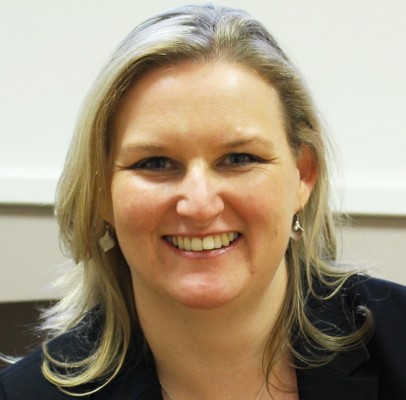Teacher Exchange – How Busy Bees Shares Practice Across Continents

With the changing landscape of the early years sector, and the international position of Busy Bees, staff who want to develop their career further afield and more opportunity than ever

One of the highlights of my time at Busy Bees thus far has been bringing our first ever International Teachers Exchange Programme to fruition here in the UK.
The exchange offered a unique opportunity for the very best staff in Busy Bees Asia to enhance their professional and personal development by experiencing, first-hand, practice within one of the most heavily regulated countries in the world.
Busy Bees is extremely focused on talent management and whilst this exchange was about sharing skills, expertise, experiences and knowledge, it was also a celebration of the talent we have within the company on a global platform.
Opportunities for practitioners to work internationally within the early years sector were previously limited to working as a nanny, being a Kids Club rep (which I was!) or TEFL.
However, with the changing landscape of the early years sector, and the international position of Busy Bees, we are able to create many more opportunities for our staff who want to develop their career further afield.
Vision to reality
Setting up the exchange programme involved weeks of planning, but it was worth it. International employment requirements vary, so I worked closely with colleagues in Asia to ensure that UK-safe recruitment procedures and standards were in place, and intricate aspects of UK-safe person requirements and practice were understood.
Meanwhile there was travel, subsistence allowances, accommodation and timetables to book and devise.
Our first cohort included seven practitioners from our Singapore team and two from our Malaysian team.
Those chosen were of different ages and backgrounds, and at different stages of their career. Some were independent and in their early 20s, while others were leaving their children and families behind; Ling has been married less than a year, while Anne has been married for over 25 years, but for both the trip was the longest time they had spent apart from their husbands.
Because our guests’ nurseries are separate entities, comprising different brands and offerings, it was also the first time our visitors had actually met one another. So, on top of my professional responsibilities my role was part head socialite and part mother hen. It was crucial that we managed and supported their expectations and understanding of UK life.
This unique set of challenges, coupled with experiencing a whole new set of cultural approaches, brought the group closer together to the benefit of the programme as a whole.
Needless to say, coordinating a visit like this is… interesting, to say the least! Our National Support Centre (NSC)’s departments played a considerable part in our robust induction system to kick start the exchange and then, of course, the four host nursery settings had to be ready to welcome their guests and make the most of their visit, ensuring children and families were aware of the programme and celebrating the privileged opportunity they were afforded.
On top of this we wanted to immerse our visitors in the UK, so there was a full social and cultural timetable to fit around the professional elements.
Learning opportunities
Each participant in the exchange was assigned a project to undertake that was relevant to their nursery and experience. They were also assigned a placement nursery and a mentor to assist with practical learning in line with each project and of course many other aspects of nursery life.
Subjects covered included imaginative play, exploration of outdoor learning, child development analysis, and education and care for children under two years of age – all areas where the UK has developed practice ahead of that within Asia.
With an intense induction week under their belts, our visitors were introduced to their settings to meet their UK colleagues and the children they would be working with, and to gather insight and material for their projects.
The creation, presentation and evaluation of their projects proved valuable for all involved, here in the UK, in our nurseries and at both our UK and BBA NSCs.
To share but a very few observations out of the masses we collated, those who undertook imaginative play discovered a multitude of ways to support learning through play, away from the formal desk settings they were used to – our ‘chatter boxes’ were a huge hit amongst all the practitioners.
Those who researched outdoor learning, meanwhile, observed the ways we extend our children’s learning in every space, at every opportunity, and how many areas of learning presented themselves in the garden.
In Asia, traditional gardens have elaborate playground apparatus, but they are spaces purely for physical play – therefore the opportunity to use the outdoor space to complement and extend the learning taking place inside nursery was a new approach for our cohort, and one which they have implemented upon their return home.
Child development analysis highlighted that the UK specialises in developing holistic learning around children’s interests and that the focus is to engage within an activity and embed children’s learning needs into that activity – allowing children to naturally fall in love with learning – rather than a traditional mathematical- or literacy-based exercise we’d expect to see in Key Stage 1.
A major change in Asia in recent years has been the rising demand for care and education for babies. In the UK, Busy Bees has always catered for babies from three months, and in this time we have developed and enhanced our practice in line with developing research and the introduction of government guidance for children under three. Therefore, we have many skills and experiences to share with our colleagues.
For this reason all of our visitors spent time working within our baby and toddler rooms.
Next steps
Due to the success of the inaugural exchange, we are already working on our next cohort, which will see a group of our UK practitioners spend time working alongside colleagues from BBA in South East Asia.
Our exchange will offer existing staff the opportunity to travel and enhance their professional skills and this year’s international expansion will present opportunities for internal and external staff to secure positions abroad, where they will work within our international education teams to offer a British-inspired early years provision.
For enquiries surrounding international opportunities, please contact Yvonne by emailing Yvonne.Smillie@busybees.com
BLENDING PRACTICE
Parents across the globe want the best start for their children, but cultural differences influence their expectations regarding early learning
• In the UK parents are aware of Busy Bees’ holistic learning approaches and as they work in partnership with our practitioners, they understand the value of learning through play. Our job is to increase awareness and demonstrate how children’s interests are built upon to ensure that learning is focused, cross-curricular and fun!
• Within Singapore and Malaysia, parents influence the learning landscape for nurseries because they have huge expectations around their child’s educational progress in more traditional subjects such as mathematics and literacy. Competence in these two areas are viewed as the overarching factors in educational success. • Bearing in mind these differences, and to ensure children are equipped for their future education, we must be sensitive to the needs and expectations of every society and skilfully blend the best of all practices, and this is exactly what our exchange was able to deliver.
Yvonne Smillie is International Project Coordinator at Busy Bees.












